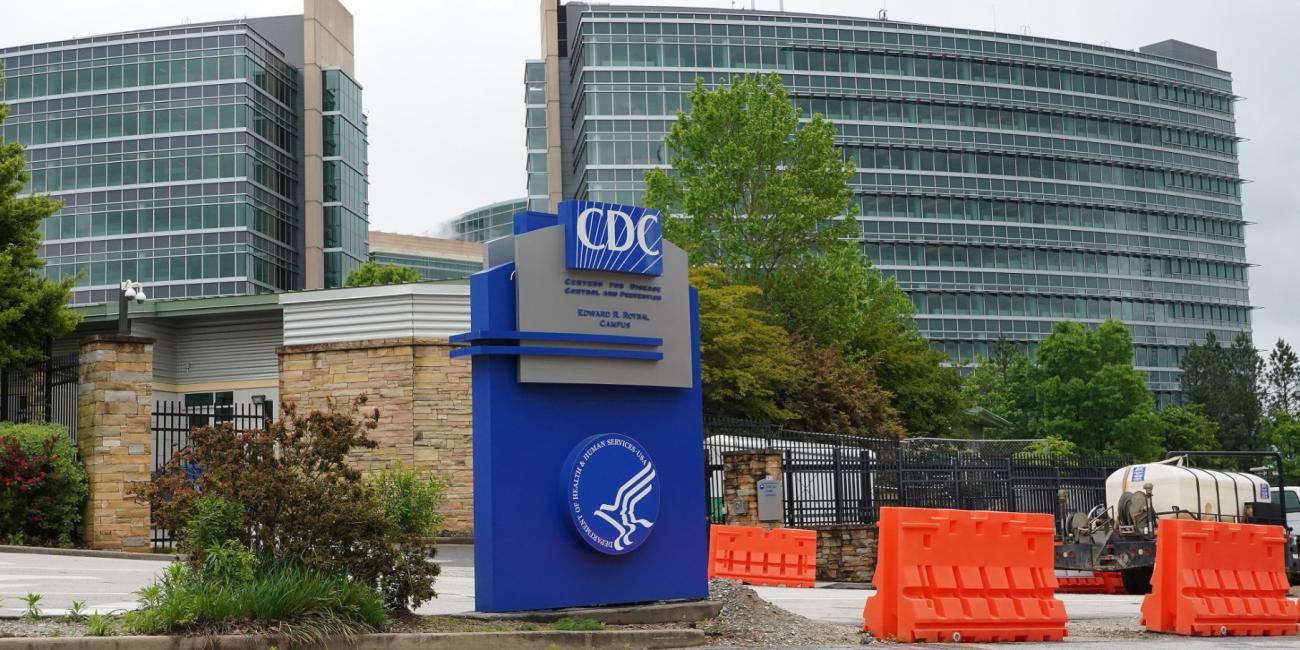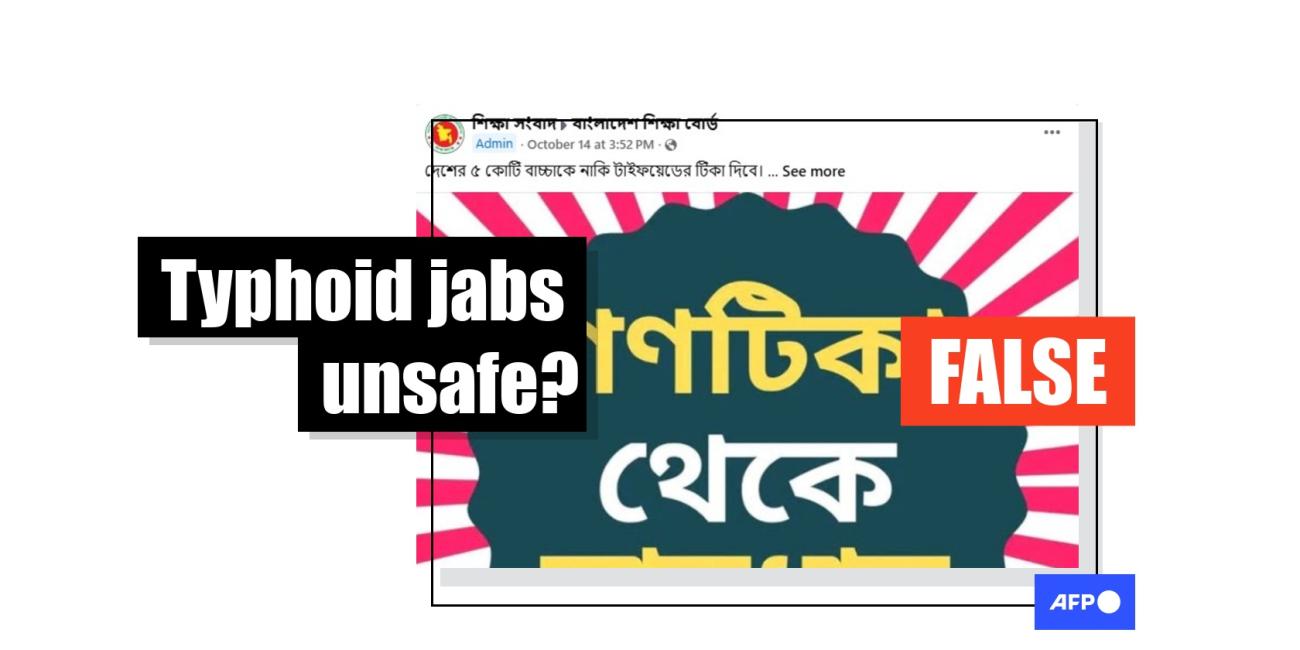
US cardiologist makes misleading claims about Malaysia's Covid-19 vaccine drive
- This article is more than four years old.
- Published on November 15, 2021 at 08:50
- Updated on November 15, 2021 at 11:40
- 4 min read
- By AFP Singapore, AFP Malaysia
The nine-minute and seven-second video was posted here on Facebook on September 25, 2021.
The video shows Dr Peter McCullough, an American cardiologist who has previously been exposed for promoting virus misinformation, speaking to the camera about the Covid-19 pandemic and vaccines.
"So, I really believe very strongly that Malaysian should shut down their vaccine program as we speak," he concludes in the video.
The post's caption states: "A very loud and clear message. Guys although is it to the Malaysian but I guess it is good in creating awareness among the members in this group. No intention to create fear."

The same video has circulated on the messaging app Telegram in Singapore and Malaysia.
The video was also shared on Facebook here and here in Malaysian-language posts; and here and here in Chinese-language posts.
It was also shared on Twitter, YouTube, BitChute, as well as Malaysian forum Lowyat.NET.
But the claims in the video — which include Covid patients younger than 50 do not need treatment, recovered patients have "negligible risk" of contracting Covid-19 again, and the virus does not spread asymptomatically — are misleading.
As of November 14, 2021, more than 29,600 people in Malaysia have died from Covid-19.
Malaysia has approved seven Covid-19 vaccines: Moderna, Pfizer/BioNTech, Johnson & Johnson (J&J), AstraZeneca, Sinovac, Sinopharm and CanSino.
As of November 14, 2021, more than 25.6 million people have received at least one dose of Covid-19 vaccine.
Scientists have widely credited Covid-19 vaccines as significantly reducing the chances of serious illness or death from the disease.
Virus variants and mutations
AFP previously debunked the claim that vaccines create virus mutations in a report here.
Covid-19 variants emerged in December 2020, prior to the widespread availability of vaccines.
Scott Halperin, director of the Canadian Centre for Vaccinology, told AFP: "If we rapidly achieve high levels of population immunity through vaccination, the risk of variant emergence is decreased because there are insufficient numbers of susceptible individuals to continue the propagation of the virus and spread through the community."
Spike proteins
The misleading claim that vaccination causes spike proteins to circulate in the body — sometimes resulting in death — was previously spread by American derma-pathologist Ryan Cole.
AFP debunked the claim here.
"[Spike] protein does not 'circulate' in the body," said Dr Oliver Stojkovic, a geneticist and professor at the Medical Faculty of the University of Belgrade, adding that "some extremely small amounts of this protein could be found (in the first few days) in the blood, but it will be broken down by passing through the liver and eliminated through the kidneys through urine."
Milos Babic, a molecular biologist, neurobiologist and research director at US-based BioSpyder Technologies, told AFP that spike proteins "can’t cause the problems caused by Covid, not even close".
Debunked claims
McCullough also repeats another previously debunked claim about virus transmission that he made in this testimony to the senate of the US state of Texas.
He claims the virus does not spread from infected people who are asymptomatic and says in this recent misleading video: "Once an individual recovers from Covid-19, they have robust, complete and durable immunity with a negligible risk of ever getting Covid-19 again."
He also states: "We don’t need to treat everybody but high risk people over age 50 with medical problems should receive early treatment to reduce hospitalisation and death."
These claims are also false.
The World Health Organization (WHO) states that infected people without symptoms can still transmit the virus.
"Whether or not they have symptoms, infected people can be contagious and the virus can spread from them to other people," according to the WHO's website here.
The US Centers for Disease Control and Prevention (CDC) says on its website that risk of severe disease from the virus increases with age but younger people should still be vaccinated in order to protect themselves and others from more serious illness.
Olivier Schwartz, head of the Virus and Immunity Unit at the Pasteur Institute in France, told AFP: "It is obvious that people under 50 who are in good health should be vaccinated."
AFP has debunked similar inaccurate vaccination claims promoted by medical professionals from the US, Canada and Belgium.
Vaccine risks
McCullough makes one truthful statement that the US Food and Drug Administration (FDA) issued a warning here on June 25, 2021, that mRNA vaccines, made by Pfizer/BioNTech and Moderna, may "increase risks of myocarditis (inflammation of the heart muscle)".
However, he leaves out research findings that myocarditis following vaccination is rare and usually mild, and that myocarditis is more common after Covid-19 infection than after vaccination.
Patients with COVID-19 had nearly 16 times the risk for myocarditis compared with patients who did not have COVID-19, as explained in this CDC report.
McCullough also correctly states that the FDA warned here on April 13, 2021, about possible bloid clots arising due to the J&J Covid-19 vaccine.
However, he does not mention that, as reported here and here, the blood clots are a "very rare side effect" of the vaccine but instead a frequent complication of Covid-19 infection.
The CDC has concluded that "benefits of COVID-19 vaccination outweigh the known and potential risks."
Copyright © AFP 2017-2025. Any commercial use of this content requires a subscription. Click here to find out more.
Is there content that you would like AFP to fact-check? Get in touch.
Contact us




